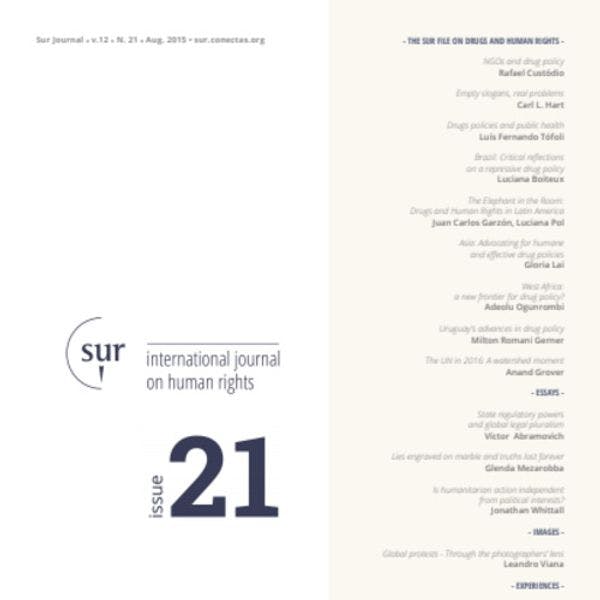West Africa - A new frontier for drug policies?
Adeolu Ogunrombi
This article explores why West Africa has traditionally been used as a drug trafficking route and how it is increasingly becoming a region for consumption and production. This is despite the continued use by West African governments of the repressive policies perpetuated by the concept of the “war on drugs.” The article attempts to explain the continued reliance on these policies by examining both the international and local context. Finally, the disastrous impact that these policies have on human rights in the region is highlighted by focusing on the situation in Nigeria and Ghana.
The trafficking of illicit drugs through West Africa has continued to grow in volume over the past decades, mainly from the Latin American countries to the thriving European and North American markets. 1 This growing market is estimated to be worth billions of dollars annually 2 and there seems to be no sign of it abating.
The choice of West Africa by traffickers has been attributed to a number of factors such as its geographic vulnerability in terms of easy access and weak intra and inter-state surveillance systems. 3 Other factors include international counter-narcotics measures driving away traffickers from their usual routes such as direct shipment from Latin America to European countries 4 to a less resistant route such as through West Africa, 5 coupled with the availability and willingness of local collaborators. This growing challenge has also brought the enormous responsibility of how to address the issue. Many of the governments in the region have adopted the populist ideology of “war on drugs.”
Keep up-to-date with drug policy developments by subscribing to the IDPC Monthly Alert.
